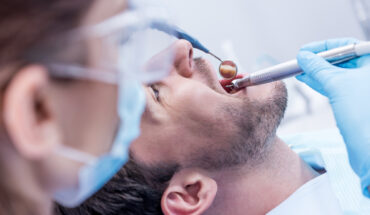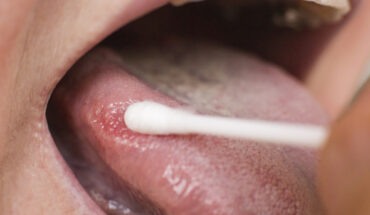 Fantastic news out of far north Queensland recently as a berry only found in the Australian outback region of the Atherton Tablelands has been shown to have powerful anti-cancer properties.
Fantastic news out of far north Queensland recently as a berry only found in the Australian outback region of the Atherton Tablelands has been shown to have powerful anti-cancer properties.
“There’s a purpling of the area, of the tumour itself, and you see that within five minutes and you come back the next day and the tumour’s black and you come back a few days later and the tumour’s fallen off,” reports Dr Glen Boyle, from the QIMR Berghofer medical research institute in Brisbane, who has led an 8-year study which found that a compound in the berry could kill head and neck tumours as well as melanomas.
An experimental drug derived from the berry, EBC-46, has been tested on 300 animals, including dogs, cats and horses, reports the ABC website.
As Australia is the world’s worst country statistically for skin cancers, this news is very exciting for a sun-worshipping population which spends its summers sun-baking at beaches from Bondi to Cottesloe and everywhere in between.
Can they juice it? Powerful anti skin #cancer berry only found in far north Queensland http://t.co/HigZpsbjsO #anticancer #skincancer
— Sydney’s Best Cafes (@sydneycafes) October 23, 2014
We have the highest rate of melanoma and prostate cancer in the world and the third-highest breast cancer rates.
Nature-lovers who prefer to sample the berry directly will be making many more outback tours to the Atherton Tablelands, however the fact of the matter is that the drug derived from the compound is a much more efficient way of extracting and utilising the compound.
“There’s a compound in the seed – it’s a very complicated process to purify this compound,” Dr Boyle told the ABC.
“The compound works by three ways: it kills the tumour cells directly, it cuts off the blood supply and it activates the body’s own immune system to clean up the mess that’s left behind.”
The international comparison of incidence of cancer showed Australia had an estimated 314.1 cancer cases per 100,000 population, according to an Access Economics report.
This put us ahead of New Zealand (309.2 cases per 100,000), North America (299.9 cases) and Western Europe (287.7 cases).
“We were able to achieve very strong results injecting EBC-46 directly into melanoma models, as well as cancers of the head, neck and colon,” Dr Boyle said.
“In most cases the single injection treatment caused the loss of viability of cancer cells within four hours, and ultimately destroyed the tumours.”
Dr Boyle says EBC-46 works in part by triggering a cellular response which effectively cuts off the blood supply to the tumour.
“In more than 70 per cent of pre-clinical cases, the response and cure was long-term and enduring, with very little relapse over a period of 12 months.”
EBC-46 was discovered by the Queensland biotechnology company EcoBiotics.
The drug is being developed as a human and veterinary pharmaceutical through EcoBiotics’ subsidiary company QBiotics.
“There is no evidence to suggest EBC-46 would be effective against metastatic cancers.”
“We must stress at this point that EBC-46 will only be trialled in the short-term for tumours which can be accessed by direct injection or topical application,” Dr Boyle said.
Most Searched Terms: skin cancer, melanomas, cancer news australia, cancer treatments, anti-cancer breakthroughs, natural cancer treatments, cancer good news.




